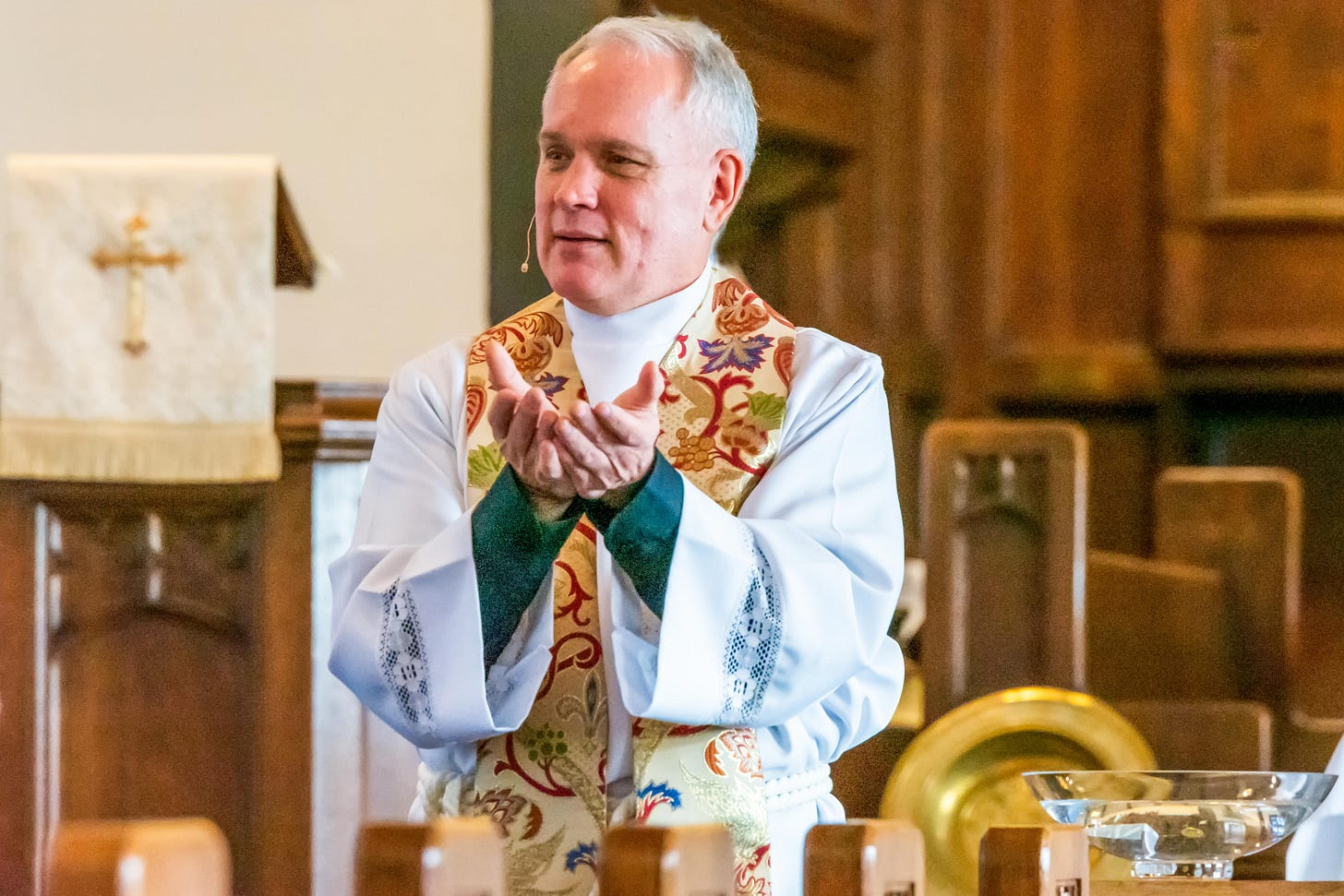What's the Proper Name for Holy Communion?
Why pastors often use different names for the sacrament
A subscriber asked, “Why does the pastor use different titles for Holy Communion like “The Lord’s Supper," “Mass,” and “Eucharist?” Are they different things? Which one is correct?”
Since I am an Episcopal priest and part of the global Anglican Communion, I will answer this great question from that perspective. Since Methodists and Presbyterians use books of worship that are genealogically derivative from our 1662 Book of Common Prayer, and since the Evangelical Lutheran Church of America uses a substantially similar book of worship, I expect that’s a good starting point.
The Catechism in the Book of Common Prayer of the Episcopal Church (p. 859) gives six names for this rite:
Holy Eucharist
Lord’s Supper
Holy Communion
Divine Liturgy
Mass
Great Offering
Historical Usage
The 1549 prayer book named it “The Supper of the Lord and the Holy Communion, commonly called the Mass.”
This was later changed to “Lord’s Supper and Holy Communion.”
Our General Convention authorized the usage of the title “Holy Eucharist” in 1804.
The Roman church adopted the title “Holy Eucharist” in the 1960s.
Designation of Liturgies
These titles are appropriate ways to designate the liturgies of Word and Sacrament. They are different names for the same sacrament.
Reasons for Interchangeable Use
Sensitivity to Congregation Backgrounds
Many members and guests have been reared in Protestant traditions, commonly referring to the meal as the Lord’s Supper or Holy Communion.
Others come from Episcopal, Roman, and Orthodox catholic traditions, where the “Holy Eucharist” has become more common in recent decades.
As a matter of hospitality to our mixed congregation and visitors, I use the titles interchangeably to help everyone infer that each designates the Sacrament.
Emphasizing Aspects of Our Story
The “Lord’s Supper” evokes a table set by Jesus at which we all sit, making it easy to talk about God's nearness, our companionship as sisters and brothers, and our friendship with God and each other.
“Holy Communion” is used to emphasize the union in our communion.
The “Eucharist” evokes the altar of God around which all Israel gathers to give thanks to the transcendent God who is the source of all things.
Deliberate Selection
My selection from our six titles for the sacrament is deliberate and depends on our context.
If you notice which one I use, it gives you a cue that I am trying to evoke a particular aspect of our relationship with God and each other.



